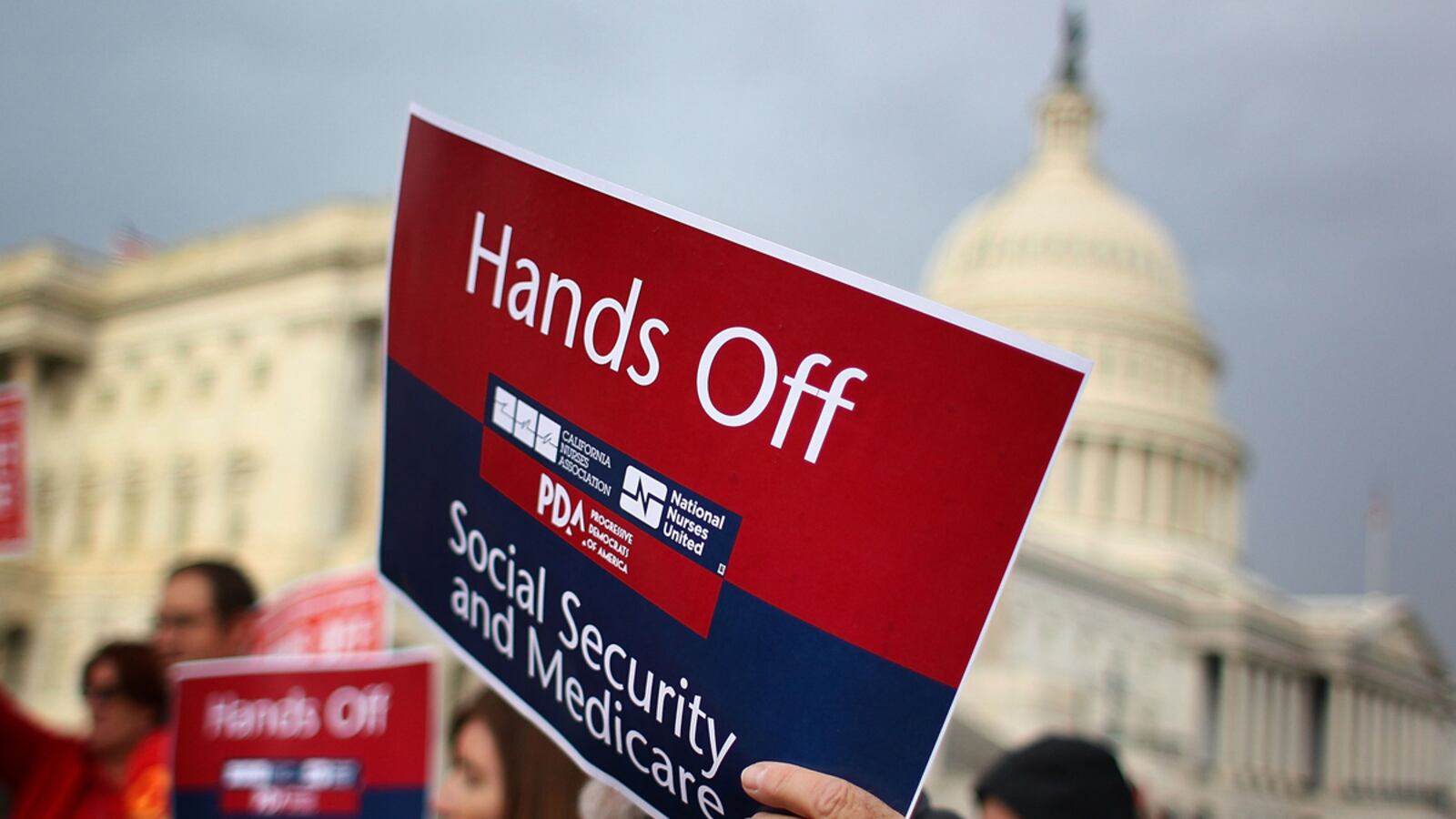In my previous column, I briefly discussed John Stuart Mill and the harm principle as a way for Democrats and liberals to justify the idea of the individual mandate. Then we watched Solicitor General Donald Verrilli turn himself into the Bill Buckner of American politics by never being able to answer the most basic and easily anticipated question from the conservative justices, otherwise known as the broccoli question. It’s also otherwise known as “the limiting principle”—that is, Scalia and his comrades wanted to know, over and over, what principle limits this kind of governmental intrusion to health insurance and prevents the government from expanding it into other areas in the future? So I return to Mill today, because the more I think about it, the harm principle is the limiting principle. That Verrilli didn’t use this—and that liberals haven’t been saying this since 2009—says something very dismaying about contemporary liberalism.

On Tuesday I paraphrased the harm principle, but here it is in Mill’s words: “The only purpose for which power can be rightfully exercised over any member of a civilized community, against his will, is to prevent harm to others.” Get that. The only purpose. That is, our natural wills guide us toward being left alone, not being part of community. And that’s just fine—until our actions harm others. Then, governmental power is justified.
I can think of no situation that fits this better than the individual mandate, and what is called in the health-care biz the “free-rider” problem. This is the problem that arises from people who don’t have insurance getting into a situation in which they need (and consume) health care, can’t or don’t pay for it, and the rest of us (insured people) picking up the tab. Remember, since the 1980s, hospitals can’t turn people away. That means everyone has access to care, so everyone is in the system—yes, simply by virtue of living and breathing, as the Tea Partiers like to say in griping about alleged federal overreach.
But here’s the problem. Millions of people in this system don’t pay insurance premiums. They are bringing direct and obvious harm to the many more millions who do pay premiums. They make our premiums higher. When they get in a car wreck or have a stroke, they’re amassing medical bills that they can’t possibly pay. The rest of us pay for them.
And that is why the harm principle applies here. The government, under Mill’s definition, has the right and duty to step in to prevent harm to others—by making the free-riders pay. It’s exactly a Millian case of harm to others. And just as it explains why the mandate is valid in this case, it also explains why this kind of government action is limited to health care and can’t be extended to the purchase of broccoli or Chevy Volts or funeral plans or whatever else the conservative justices came up with Tuesday. If you don’t eat broccoli, you cause me no harm. Some would say, well, you increase your odds of colon cancer if you don’t eat broccoli, you might harm me if you don’t have insurance, but that’s speculative and very indirect and frankly pedantic. I can’t seriously claim injury based on your diet. Or whether you drive a Chevy or a Volvo. Or whether you are buried or cremated. These are not systems in which we’re all participants, either paying or nonpaying. Following Mill’s harm principle ensures that this kind of governmental activity is limited to cases in which person or Group A’s action directly harms person or Group B. That limits this to health care, answers the broccoli question, and shuts down that entire line of attack.
Now let’s return to Verrilli. He had weeks to get ready for Tuesday, the most important day of his professional life. I am told that he is a very smart man and prepared very thoroughly. So it’s not that he’s stupid that he didn’t think of this line of argument. And maybe he thought of it and rejected it for some reason that isn’t occurring to me, because I think it’s pretty airtight. It’s certainly better than anything he came up with at the crucial moment.
But then I thought: this isn’t just Verrilli. I’ve read a few hundred thousand words about health care since 2009, and I haven’t read many liberals making this kind of argument. I don’t want to say never, which might be inaccurate. But in general terms, liberals think of and write about health care as a right.
But what if, once Obama decided to embrace the individual mandate, health care had been framed not as a right but as a responsibility? If the White House had emphasized this line more, we may have had a completely different debate; then, conservatives would have been put in the position of defending the personal irresponsibility of the people who wouldn’t buy insurance. It would also have been a more powerful pushback against this silly freedom argument, because it would have said: no, you are not free to make other people pay higher premiums because you’re cheap or you’re young and think you’re invincible. Doing that is no different than walking out on a group check at a restaurant, leaving the others to pick up your part of the tab. That’s a strange kind of freedom.
The whole thing could have been dramatically reframed. But liberalism has trouble talking about responsibility. Liberals are far happier talking about rights. And the policy details—the old liberal appeal to reason. Finally, they don’t want to be seen as picking on the people who genuinely can’t afford insurance. But those reflexes put the administration on the defensive from the start and may now have led to defeat. The reflexes and thought habits of modern liberalism prevented people from seeing that there was a far better way to talk about health care.






